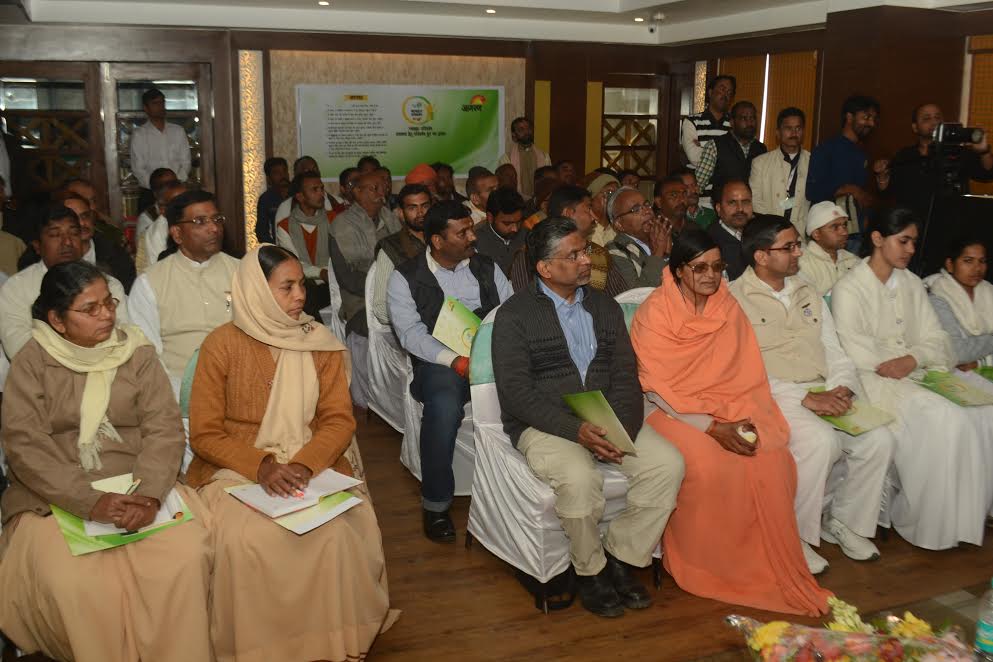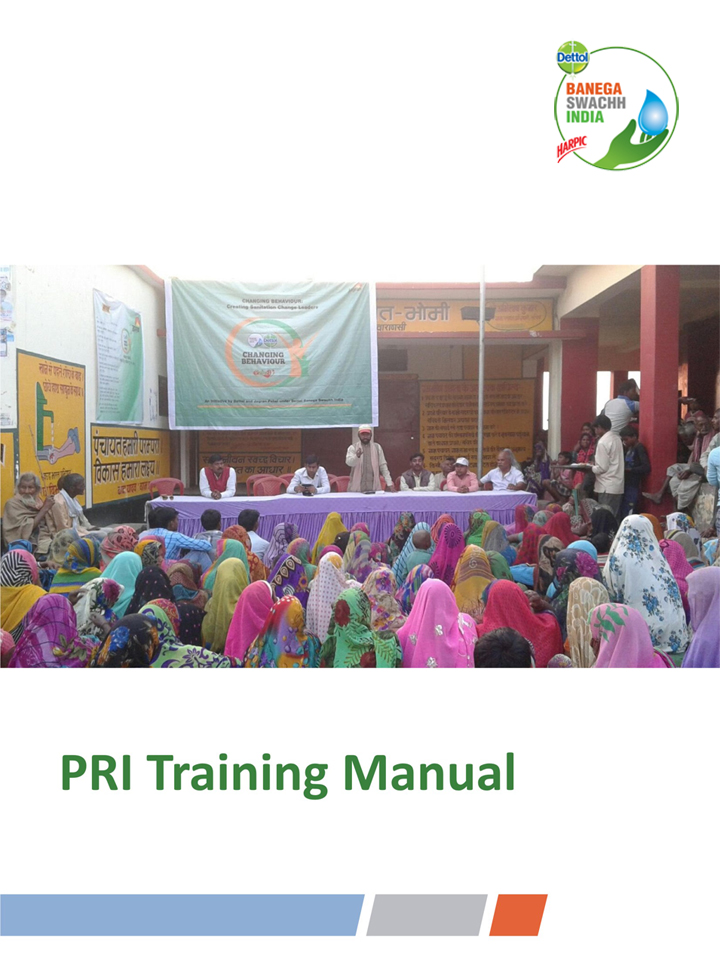The initiative is driving behaviour change using advocacy, Information, Education Communication (IEC) tools and Behaviour Change Communication (BCC) tools, to build capacities of communities, create change leaders and disseminate knowledge. The aim is to create awareness of good hygiene & sanitation practices. While change leaders in the communities have been the critical pivot and pillar of this initiative, the Behavioural Change Communication (BCC) Tools ensured reiteration, reinforcement of and engagement with the message. And also created a sense of ownership of the initiative amongst the target audience.
These customised tools, developed especially for the target audience, had a critical role in enhancing and entrenching the impact of this vertical of the Dettol Banega Swatch India Campaign.
Four Key Behaviour Change Communication (BCC) Tools which were used in the first year of the initiative:
To inculcate critical hand-washing behaviour, 'Baby Book' is an effective tool for Mothers & Caregivers. It's distributed through ASHAs/ANMs during VHND/VHSC meetings.
• The book helps mothers to understand importance of hygiene & good sanitation practices during pregnancy and motherhood.
• It has an immunization/vaccination schedule for the baby to prevent him/her from various infections and diseases.
• The most important aspect of this book is to create an emotional bond between a mother and child as this book provides space to paste baby's picture, his/her hand and foot prints.This special feature ensures that the book is kept well and referred for various reasons from time to time.
• The book helps mothers to focus on critical yet regular issues relating to children's hygiene & health.
• 76% mothers attributed positive hand washing behaviour change to the Baby Book.
• 8000 plus baby book distributed.

Asha worker explaining the importance of the Baby Book to women of Puari Kala village.
To overcome the challenge of illiteracy in rural areas, digital technology is used to make people understand the importance of health, hygiene and sanitation, an Android-based interactive game "Swachhta Chakra" is developed to educate villagers in a question-answer format.
• The Front-line Workers ( FLW) who are trained to demonstrate this game uses platforms such as VHND/VHSC, household visits etc to demonstrate the game.
• The game is appreciated by the beneficiaries for being informative as well as knowledge testing tool.
• The game has various levels which keeps audience involved with an interest and enhance their knowledge & awareness.
• 85 % women were of the opinion, that the Swacchta Chakra game increased awareness about good sanitation practices and the hazards of open defecation.
• Beneficiaries who participated in the Focus Group Discussions reported that the game is an entertaining alternative for knowledge dissemination.
• Although the target audience of the game is the mothers, even children have benefited a lot from it.

L to R: Mr. Ravi Bhatnagar- Manager External Affairs. RB, Mr.Tejashwi Prasad Yadav- Honourable Deputy Chief Minister of Bihar, Mr.Sameer Gupta Vice Chairman, Jagran Pehel, at the launch of Swachhta Chakra App.
To reinforce the key messages from time to time, wall paintings plays a key role as people see them during their daily routines. They have a great potential to emphasize on key & correct hygiene and sanitation messages.
• Under this initiative, 1,20,724 square feet of wall paintings were done in Bihar and UP for wider impact.
• 66% of the initiative beneficiaries who had seen the wall paintings claimed that they reinforced learning relevant to good hygiene and sanitation.
• Another advantage of the wall painting is that it does not target a particular group of stakeholder but in fact triggers thought in anyone who sees them.

Wall painting on village wall aiming to create awareness about sanitation and hygiene.
To drive awareness among villagers the interactive street plays/Nukkad Nataks are conducted using their local language. The plays are conducted to address the problem of open defecation in 200 villages across Bihar and Uttar Pradesh.
• These plays are well accepted by the local people as a source of entertainment and information to follow good hygiene and sanitation practices for better health.
• Most of the targeted beneficiaries found the street plays extremely entertaining while also being very informative.
• 82% of the Programme beneficiaries that attended the street plays report it to be extremely informative, while also having the potential to rapidly trigger behaviour change with respect to good hygiene and sanitation.
NUKKAD NATAK SCRIPT NEWS WATCH VIDEO NUKKAD NATAK IMPACT REPORT

Nukkad Natak, conducted in Gosaindaspur village, Bhagalpur district , Bihar
Faith Based Leaders (FBLs) are the largest organized sector of civil society and important partners for success. Their voice is powerful to reach, influence and accelerate change among communities. Under this initiative, orientations were organized for faith leaders at Varanasi, Etawah, Kannauj (Uttar Pradesh) and Bhagalpur (Bihar).
• 300 faith leaders were oriented and trained for further dissemination of information to the community through religious gathering, sanitation chaupals, institutes etc.
• After attending these orientations, these FBLs successfully reached out to stakeholders with orthodox/traditional mindsets and motivated both genders (in all age groups) in their villages to promote importance of hygiene & sanitation practices for healthy lives.

Panchayati Raj Institute Members such as Sarpanch/Pradhan is the local administrator who has a major role to play in development of the villages.
• The Panchayati Raj Institute Training Manual is an important tool to train Panchayati Raj Institute members for all kinds of village level activities focusing on their role in achieving Open Defecation Free status for their village.
• Under this initiative, 200 Panchayati Raj Institutes were trained to promote and take initiatives towards making their villages clean and open defecation free zone. The trained Panchayati Raj Institutes are playing a strategic role in creating awareness and imparting key messages on hygiene and sanitation for behaviour change. They are committed and contributing towards making their village clean & Open Defecation Free and also to sustain the Open Defecation Free status (if achieved) of their village.

